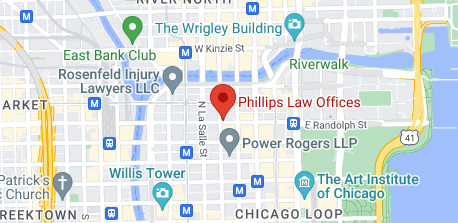
Call now for your
Free Consultation:

Free Consultation:

Free Consultation:
Emergency situations are an unavoidable part of medical care. Not only do emergencies occur in the emergency room, but emergencies crop up in physicians’ offices, inpatient hospital wards, and especially in operating rooms and labor and delivery wards all the time. What is the duty of care owed by a medical care provider in an emergency situation? Does the duty of care remain the same regardless of the circumstances? Can a medical malpractice law firm in Chicago help?
Most courts have determined that physicians and other health care providers should be granted some leeway in performing in emergency situations. These courts allow health care providers to assert emergency as a defense in medical malpractice actions. Whether the emergency will be a complete defense to the alleged negligence depends on the facts of the case. More often, the emergency nature of the situation is merely one factor a jury may consider in determining whether a medical mistake was, in fact, malpractice.
Sometimes an emergency situation arises in which a physician is unable to obtain informed consent from a patient prior to proceeding with surgery or other medical treatment. For example, if a patient who was in the hospital with a broken bone unexpectedly became unconscious, a physician would have to proceed with medical treatment without the patient’s consent. As long as the treatment was a reasonable response to the medical emergency, the emergency situation would be a complete defense to a claim that the physician was negligent in failing to obtain consent. Likewise, if a patient suffered an unexpected complication during surgery and the surgeon was required to perform an additional surgical procedure without the patient’s consent, the surgeon would not be liable for malpractice in failing to obtain consent because the situation was an emergency.
Other times, emergency situations occur within the provision of medical care. For example, a patient who is seeing a physician for a routine check-up can suffer a heart attack, stroke, seizure, or other life-threatening medical complication. In these situations, the emergency rule lowers the standard of care owed by the health care provider to the patient. The emergency situation allows jurors to find conduct that may be negligent under normal situations acceptable in light of the emergency.
Some states have “Good Samaritan” statutes that protect health care providers working in emergency situations. These laws vary from state to state. Some Good Samaritan statutes apply to all emergency situations. Others apply only to care provided outside a hospital setting, such as care provided at an accident scene or in a restaurant or other public place. In states that do not have Good Samaritan laws and/or in states in which the Good Samaritan law does not apply to care provided in a hospital, the emergency rule serves as a defense to care provided under emergency conditions.
Copyright 2012 LexisNexis, a division of Reed Elsevier Inc.
Call For A Free Consultation

161 N Clark St #4925
Chicago, IL 60601
(312) 346-4262
Copyright 2023 Phillipslawoffices. All Right Reserved